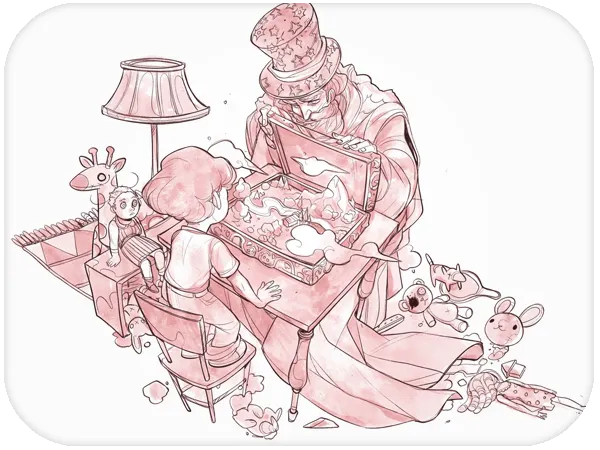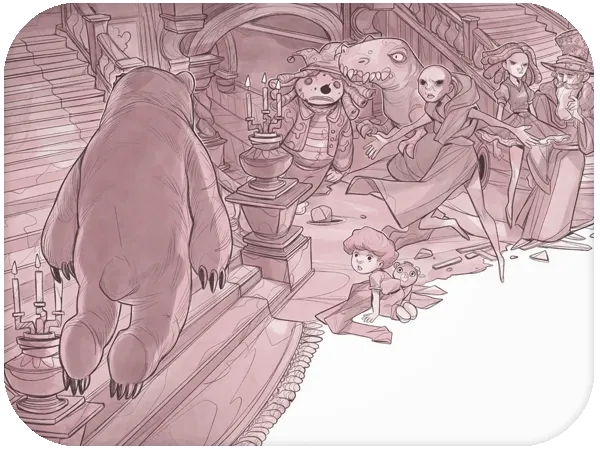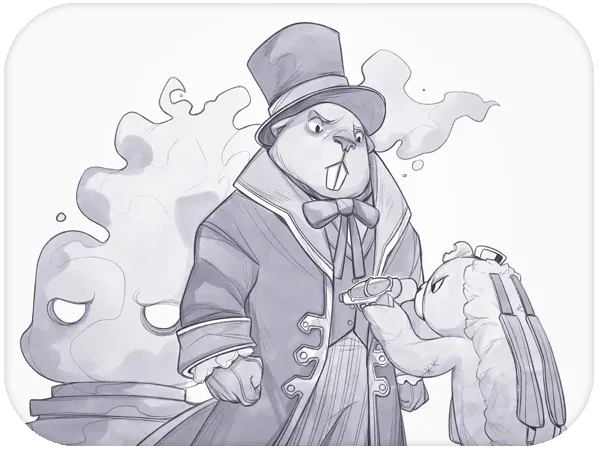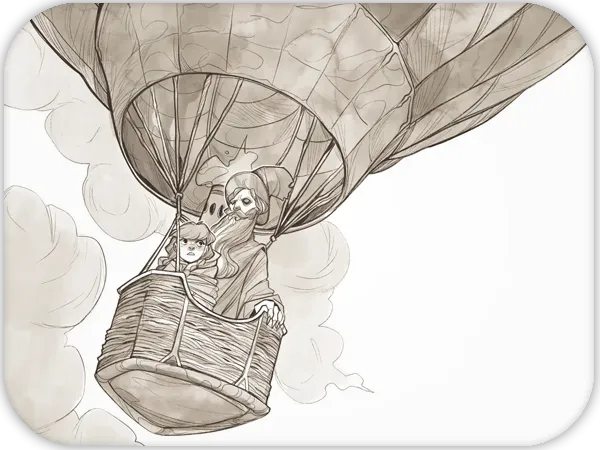Nerod Laptsev
Wizard, guide, and shadow –
he opens portals,
but never hands out keys.
Nerod Laptsev is the first magical figure Anne encounters. He gives her the mysterious board game that will lead her into the Forest — and perhaps into herself. He appears at key moments to help her, to warn her, or to offer guidance, especially when she’s in danger. Although he seems all-knowing at first, his role becomes increasingly elusive as the story progresses — he himself begins to struggle with forces beyond his understanding.
Laptsev embodies the figure of the imperfect mentor: wise, but not infallible. At first, his presence creates the illusion of control, but his later difficulties reflect the story’s deeper message — true growth doesn’t come from being led, but from learning to walk on your own.
Unlike the classic wizard archetype, Laptsev doesn’t offer spells or solutions. He offers questions. His guidance is cryptic, his timing unpredictable, and his magic—while powerful—never quite under his control. This uncertainty sets him apart from the gods and guardians of other tales; he is not there to rescue, but to disrupt, to shift the story forward by unsettling its heroes.
There are moments when even Laptsev seems lost, caught between worlds, or late to intervene. And yet, his presence never fully vanishes. Like a memory just out of reach, he lingers on the edge of the narrative, reminding Anne—and the reader—that not all helpers arrive with certainty or strength. Some arrive simply to remind us that we are not alone, even when we must face the hardest truths by ourselves.
– A magical guide who is not all-powerful — the illusion of control
– Board game = entry into trial, but not into safety
– Disappearing figure = trust beyond visibility
– Time slip = consequences of interfering with deeper forces
– Between worlds = in-between authority
Goodbye, Anne. I wish you… strength.
It was time you learned that nothing in this world vanishes without a trace, Anne. A broken toy, a harsh word, an angry glance — all of it stays somewhere and doesn’t disappear, even if we’ve long since forgotten it.
No one can fix the harm caused by someone else. Only the hand that brought about the misfortune can make it right.
📘 Book I
In Book I, Laptsev is at the height of his magical powers. He introduces the “meta-quest” and protects Anne at decisive moments.
📗 Book II
In Book II, he appears only at the very end — but remains strong and impactful.
📙 Book III
In Book III, his influence and power begin to slow and fade. He is often caught “between worlds” or struggling to return. Though he never gives up, his ability to shape events grows increasingly limited.
– Did he trigger a chain of events he can no longer control?
– Could the weakening of his influence be part of a larger cycle of magical instability?
– Has Anne perhaps surpassed him without even realizing it?
– Or is this story simply a reflection of how wisdom sometimes yields to will?



